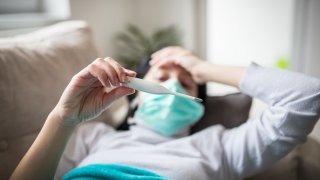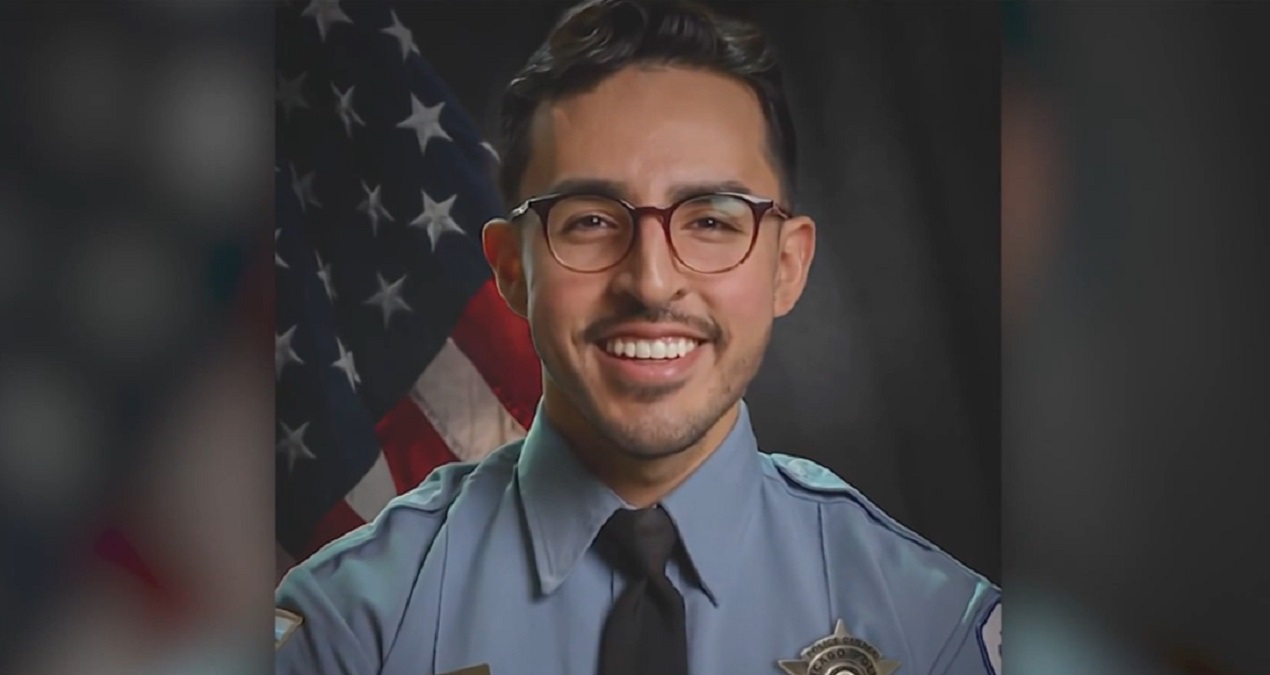
With COVID, RSV, flu and a number of other viruses circulating heavily, chances are you're either sick or know someone who is right now. So what should you do if you're feeling ill or were around someone who was ill over the Thanksgiving holiday?
Experts say there are some important steps to take - no matter your symptoms.
Start by determining what you can and take necessary precautions.
According to the Illinois Department of Public Health, anyone who was exposed to someone with COVID should wear a mask for 10 days when around others and avoid contact with persons who are at high risk for severe disease and large gatherings. The health department notes that the "date of last exposure" should be considered day 0.
Feeling out of the loop? We'll catch you up on the Chicago news you need to know. Sign up for the weekly Chicago Catch-Up newsletter here.
Then, it is suggested that anyone who is ill or was exposed to someone who was, should take a COVID test - even if you're not feeling any symptoms following a Thanksgiving get-together.
When should you test?
With the incubation periods of the current prevalent strains of the omicron variant dropping down to just over three days, some experts suggest testing early and often. Repeat testing is recommended for those who test negative.
Local
"Even if one has no symptoms, I would certainly test on day three and then test again at day five," Dr. Sharon Welbel, director of Hospital Epidemiology and Infection Control for Cook County Health, told NBC Chicago.
IDPH recommends those who are asymptomatic test again on Day 6 following your exposure.
"People should use multiple tests over a certain time period, such as two-three days, especially when the people using the tests don't have COVID-19 symptoms," guidance from the U.S. Food and Drug Administration states.
If you test positive, it means that the test detected the SARS-CoV-2 virus, and you most likely have COVID.
You are then encouraged to follow the CDC’s guidance for people with the virus, including staying at home, isolating from others and seeking follow-up care with a health care provider if necessary.
But with the current prevalence of the flu and RSV, a COVID test may not be the only test you need to take if you're feeling sick.
“(COVID) can really mimic influenza, so it’s impossible to tell,” Welbel said. “It is worthwhile seeing a provider to get molecular tests. (There are) all-in-one tests that test for COVID and influenza and RSV and others. That’s really ideal, because really you want to start therapy in the first few days (after the onset of symptoms).”
With different therapies and treatments existing for COVID-19 and influenza, Welbel said that knowing which one you have if you are sick can both help ensure the best possible treatment for the patient while helping keep those in public settings safer.
IDPH notes that for other respiratory viruses, like influenza, RSV, parainfluenza virus and more, home tests are not as easily accessible.
"If you test positive for flu make sure you discuss treatment with your provider within two days of falling sick," IDPH recommends.
The department also stressed staying home if ill, even if it's not COVID.
"If COVID testing is negative, people should still remain home and away from others until other symptoms have improved and they are fever-free for 24 hours without use of fever reducing medication," the department told NBC Chicago. "You may need special care to avoid contact with those who have weakened immune symptoms and are at risk of getting severely ill from these viruses."
Lastly, experts encouraged anyone who is eligible to get vaccinated for both flu and COVID as the holiday season ramps up.



